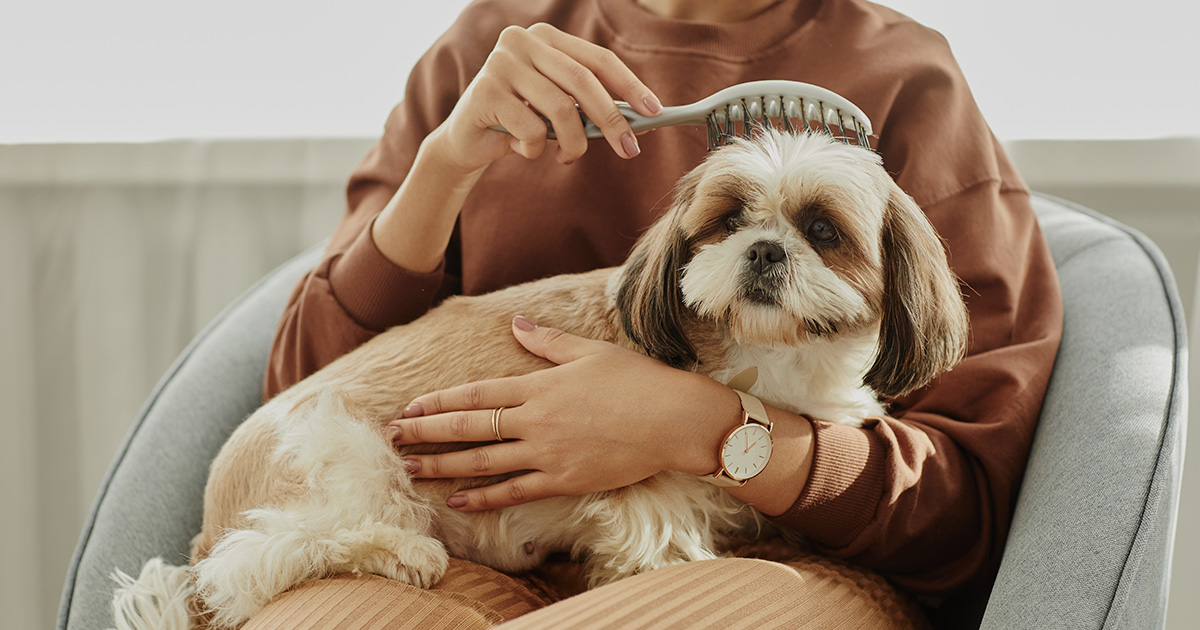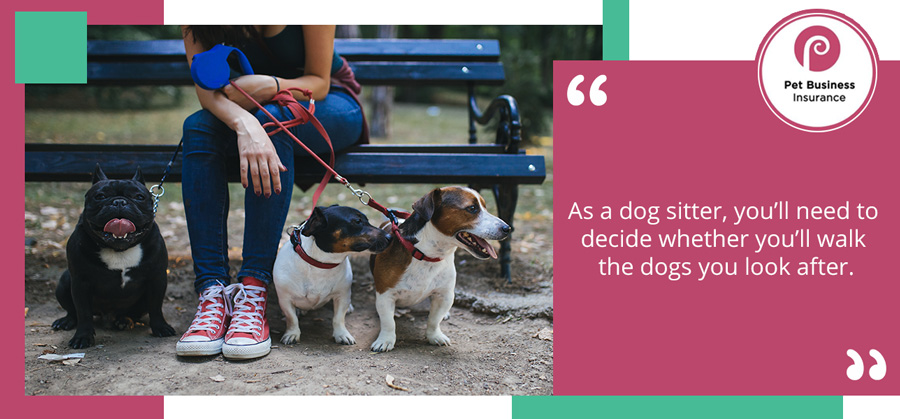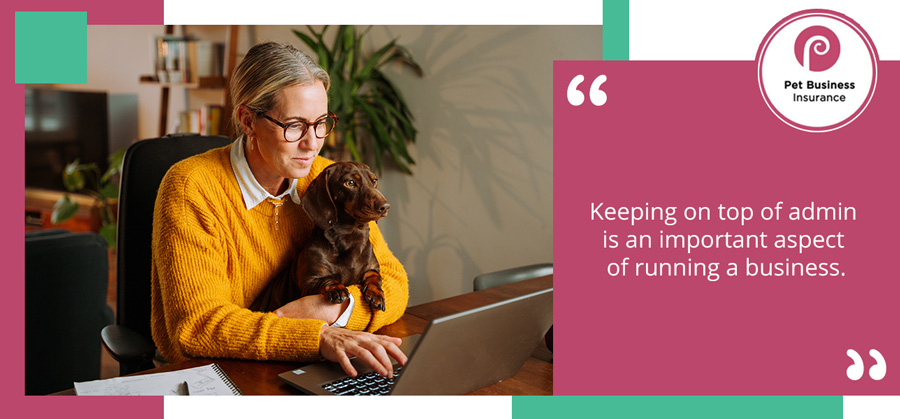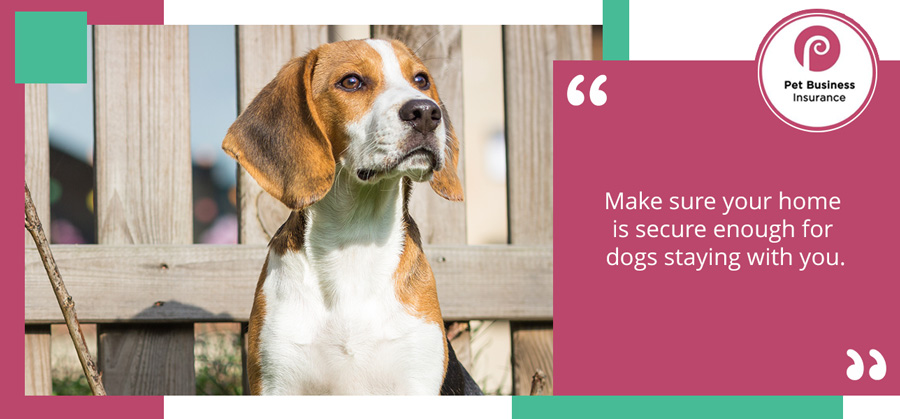
If you love dogs, becoming a dog sitter is a great way to earn an income doing something you love.
Looking to set yourself up in business as a dog sitter? Our guide can help you get to grip with the essentials of what to expect or consider.
What services will you offer?
The law is slightly different depending on the services you offer, so you need to have a clear vision for this from the start. Some key considerations:
- Will you offer dog sitting services at your home or only at your clients’ homes?
- Will you offer overnight dog sitting services or just during the day?
- Will you walk the dogs or just keep them company at their homes?
- Is there a maximum number of dogs you’ll look after at any one time?

What are the legal requirements for becoming a dog sitter?
If you are going to be paid to look after dogs in your own home, either overnight or during the day, you will need a licence from your local authority.
If you have kennels at your home, you will also need a licence, and must comply with dog kennel boarding licensing guidance.
If you are providing dog day care at a business premises, you must also have a licence from your local authority. However, if you are dog sitting at a client’s home, you do not need a licence.
Clients may want you to have undergone a criminal record check before they give you the keys to their homes. In addition, make sure you present clients with a dog sitting contract, which sets out the terms and conditions by which you will operate.
What qualifications or experience do you need to be a dog sitter?
There are no formal qualifications necessary to be a dog sitter. However, you should have some experience of caring for and handling dogs. You may also benefit from having some medical experience or qualifications.
It’s a good idea to join a professional association such as the National Association of Pet Sitters and Dog Walkers (NarpsUK). They will have guidelines or a code of conduct which can help demonstrate your credibility to clients.
Do you need a vet?
You will need details of the vet that the client is registered with. Ideally, the vet should be informed that you are pet sitting. You should also make sure you know whether the dog has any medical requirements, and what to do if a medical emergency occurs.

Sorting out the admin
You need a workable system in place to manage your admin. This will include:
- invoicing clients
- keeping a record of clients
- keeping accounts
You must register with HMRC for tax purposes. This means deciding whether you want to operate as a sole trader or a limited company.
You will also need to make sure you comply with regulations on the storing and transfer of personal information (e.g.GDPR).
How to let people know about your dog sitting business
Once you’ve got the essentials in place, it’s time to let people know about your dog sitting business. There are many ways you can do this. Some examples include:
- word of mouth
- telling friends
- handing out business cards
- displaying flyers and posters at local events or venues
- using social media
- setting up a website
All of these options can be committed to without the need for an excessive outlay.
Preparing for a client
If you will be dog sitting at a client’s home, try to visit in advance so you can be introduced to the dog beforehand. It’ll also give you the opportunity to check what facilities are available.
If you’re dog sitting in your own home, check that your property is a safe and appropriate environment for dogs. That means making sure:
- your garden is secure
- nothing dangerous is within reach
- you have a suitable selection of toys, leads, and water / food bowls

Does a dog sitter need insurance?
You should always have an appropriate form of pet business insurance to cover potential liabilities. This should always include:
You may also want to make sure you are covered for other typical risks dog sitters face, such as:
- losing a client’s house keys
- loss of your dog boarding licence
- loss of a dog in your care
Depending on how your dog sitting business is set up, you may find that you also need optional insurance cover, e.g. employers’ liability insurance if you have any staff.
Reliable dog boarding insurance providers
As a professional dog sitter, it’s important to be prepared. That means having the right business insurance from a reliable insurer. Not only will it be there to protect your business if something happens; it will also reinforce your reputation with potential clients.
For almost two decades, Pet Business Insurance has specialised in the provision of insurance for a range of small- and medium-sized pet businesses, including dog sitters.
To discuss your dog sitting business insurance requirements, get in touch with Pet Business Insurance today. Call 01284 736 874 or complete our online enquiry form.